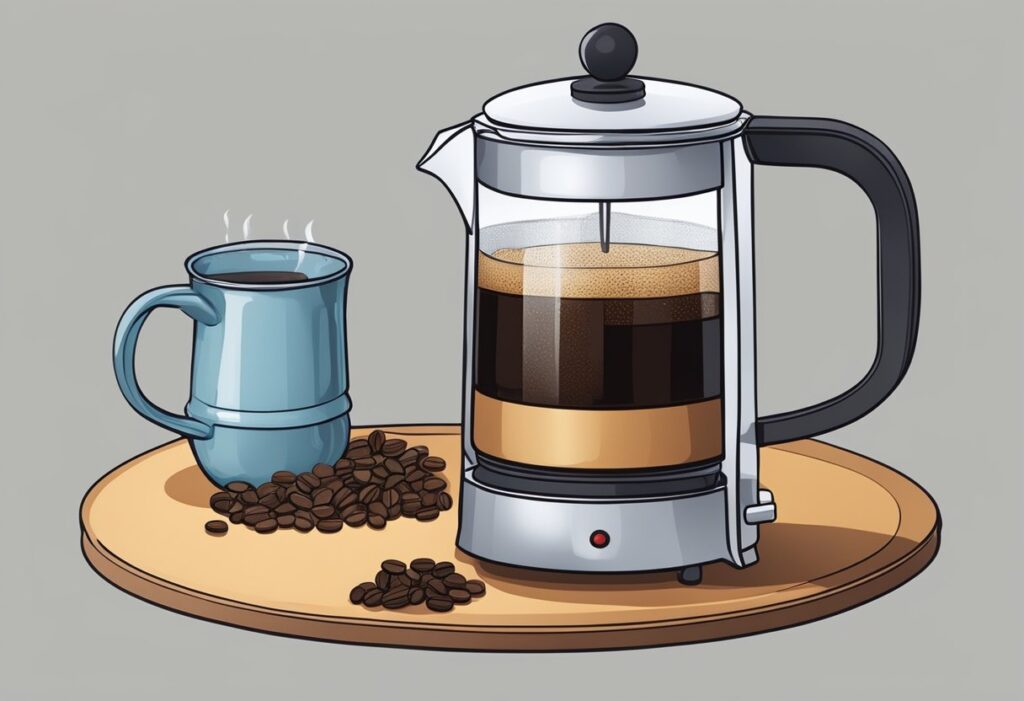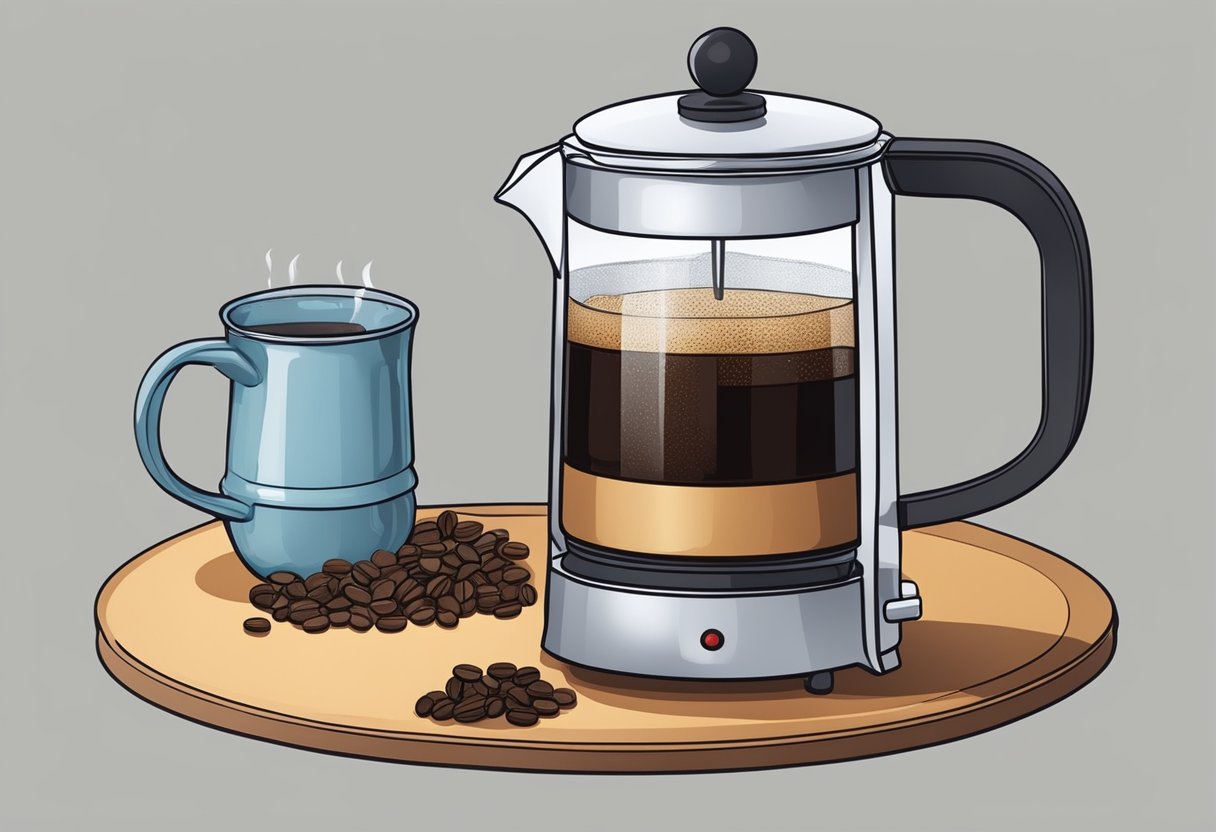
Does a Percolator Make Good Coffee?
The humble percolator. A fixture in kitchens for generations, its gurgling rhythm a familiar soundtrack to mornings past. But in a world dominated by sophisticated espresso machines and pour-over setups, the percolator’s reputation has become…complicated. Does a percolator make good coffee? That’s the question we’ll explore, delving into the science, the history, and the subjective nature of a perfect cup.
For many, the percolator evokes nostalgia. It represents a simpler time, a time before the complexities of barista-level brewing. But for others, it’s a relic, a device that consistently produces a bitter, over-extracted brew. The truth, as with most things coffee-related, lies somewhere in the middle.
This article will dissect the percolator, examining its mechanics, its impact on flavor, and ultimately, whether it can deliver a satisfying cup of coffee in today’s discerning coffee landscape. We’ll also explore the arguments for and against percolator coffee, offering a balanced perspective for both the nostalgic enthusiast and the modern coffee aficionado.
The Percolator Unveiled: How It Works
Understanding the percolator’s brewing process is crucial to answering the question: does a percolator make good coffee? Unlike other brewing methods, the percolator operates on a continuous cycle. Here’s a breakdown:
- Water Heating: The process begins with water in the bottom chamber being heated, typically by an electric heating element or a stovetop burner.
- Upward Journey: As the water heats, it boils and creates steam, which forces the water upwards through a central tube.
- Coffee Saturation: The water then sprays over the coffee grounds held in a basket at the top of the tube.
- Repetition: The brewed coffee then drips back down through the grounds, repeating the cycle. This continuous recirculation is the defining characteristic of the percolator.
This continuous recirculation is the key to understanding why opinions on percolator coffee are so divided. It’s also central to the debate surrounding whether a percolator make good coffee.
The Flavor Profile: Advantages and Disadvantages
The continuous brewing cycle of a percolator significantly impacts the resulting coffee’s flavor. This impact is the crux of the debate: does a percolator make good coffee?
Potential Advantages
- Convenience: Percolators are generally simple to operate, requiring minimal effort and expertise. This ease of use is a significant advantage for many.
- Robustness: Percolators are often durable and can withstand the rigors of everyday use.
- Heating Function: Many electric percolators can keep coffee warm for extended periods, a boon for those who enjoy multiple cups throughout the morning.
Potential Disadvantages
- Over-Extraction: The continuous brewing process often leads to over-extraction. The water is in contact with the grounds for an extended period, resulting in the extraction of bitter compounds. This is a major factor in the question, does a percolator make good coffee?
- Bitterness: Over-extraction commonly results in a bitter, sometimes acrid, taste.
- Lack of Control: Unlike pour-over or espresso methods, the percolator offers limited control over brewing parameters like water temperature and brewing time.
- Sediment: Percolators can sometimes produce coffee with a gritty texture due to fine coffee particles passing through the filter.
The flavor profile often depends on the specific percolator, the coffee used, and the user’s brewing technique. However, over-extraction is an inherent risk when using a percolator, making it a key consideration when asking, does a percolator make good coffee?
Percolator Coffee vs. Other Brewing Methods
To truly answer the question, does a percolator make good coffee, we need to compare it to other brewing methods. Let’s examine how percolator coffee stacks up against its counterparts:
Pour-Over
Pour-over methods, like the Hario V60 or Chemex, offer greater control over brewing variables. The user can control water temperature, pour rate, and bloom time, resulting in a cleaner, more nuanced cup. Pour-over typically produces a brighter, more flavorful coffee, with less bitterness. The precision of pour-over brewing contrasts sharply with the simplicity of the percolator, making the question, does a percolator make good coffee, a relevant one.
French Press
The French press immerses coffee grounds in hot water for a specific duration. The resulting coffee is often full-bodied and rich, with a slightly more textured mouthfeel than pour-over. However, French press coffee can also be susceptible to over-extraction if the steeping time is too long. While offering a different experience than the percolator, French press, too, can produce great coffee, making the question, does a percolator make good coffee, a matter of personal preference.
Drip Coffee Makers
Modern drip coffee makers often incorporate features like pre-infusion and precise temperature control, leading to a more balanced extraction than a percolator. While not as customizable as pour-over, drip coffee makers offer a convenient and often more consistent brew than percolators. This consistency is a key advantage when comparing, does a percolator make good coffee?
Espresso Machines
Espresso machines use high pressure to force hot water through finely ground coffee, producing a concentrated shot of espresso. Espresso is the foundation for many specialty coffee drinks. Espresso machines offer the most control over extraction and can create complex and flavorful coffee. The sophistication of espresso brewing makes the question, does a percolator make good coffee, even more relevant.
Factors Influencing Percolator Coffee Quality
While the percolator’s inherent design presents challenges, several factors can influence the quality of the resulting coffee and help determine whether a percolator make good coffee:
- Coffee Bean Quality: Using high-quality, freshly roasted coffee beans is paramount. The better the beans, the better the coffee, regardless of the brewing method.
- Grind Size: A coarser grind is generally recommended for percolators to minimize over-extraction. Experimenting with grind size can help optimize the flavor.
- Water Quality: Using filtered water can improve the taste of the coffee by removing impurities.
- Brewing Time: Limiting the brewing time can help prevent over-extraction. Monitor the brewing process and remove the percolator from the heat source once the desired strength is achieved.
- Percolator Type: Some percolators offer better temperature control and brewing consistency than others. Electric percolators often provide more consistent results than stovetop models.
These factors demonstrate that even with a percolator, careful attention to detail is crucial for achieving a satisfying cup and answering the question, does a percolator make good coffee?
The Verdict: Does a Percolator Make Good Coffee?
The answer to the question, does a percolator make good coffee, is nuanced. While a percolator can produce a decent cup of coffee, it often falls short of the quality achievable with other brewing methods. The continuous brewing cycle increases the risk of over-extraction and bitterness. However, a well-maintained percolator, combined with high-quality coffee beans, a proper grind size, and careful brewing technique, can produce a drinkable cup.
Ultimately, whether a percolator makes good coffee depends on individual preferences. If you enjoy a strong, bold cup of coffee, the percolator might be suitable. However, if you prioritize nuanced flavors and a cleaner taste, other brewing methods are likely a better choice.
The percolator remains a viable option for those seeking convenience and simplicity, especially for situations where other brewing equipment isn’t readily available. But in a world of increasingly sophisticated coffee brewing, the question, does a percolator make good coffee, highlights the evolution of coffee culture and the pursuit of the perfect cup.
Beyond the Brew: The Percolator’s Place in History
The percolator’s story is intertwined with the history of coffee itself. It became a popular brewing method in the early 20th century, offering a convenient alternative to the laborious methods of the past. Its widespread adoption reflects a shift towards accessible coffee brewing in homes and diners across America. The percolator’s legacy is a testament to its impact on coffee culture.
The percolator’s continued presence in some kitchens and its nostalgic appeal speaks to its enduring charm. While the technology may be outdated, the percolator holds a unique place in coffee history, and understanding its role helps answer the question, does a percolator make good coffee, in a broader context.
Making the Most of Your Percolator
If you own a percolator and want to make the best coffee possible, here are some tips:
- Choose the Right Beans: Opt for freshly roasted, high-quality beans.
- Grind Coarsely: Use a coarser grind size to avoid over-extraction.
- Use Filtered Water: This will improve the overall taste.
- Monitor Brewing Time: Avoid over-brewing. Remove the percolator from the heat source once the coffee reaches your desired strength.
- Clean Regularly: Thoroughly clean your percolator after each use to prevent buildup and maintain optimal performance.
By following these guidelines, you can improve your chances of enjoying a good cup of percolator coffee and get closer to answering the question, does a percolator make good coffee, to your satisfaction.
Conclusion: The Ongoing Debate
The debate over whether a percolator makes good coffee continues. While its limitations are undeniable, the percolator’s simplicity and historical significance ensure its place in coffee history. Whether you are a seasoned coffee enthusiast or a casual drinker, understanding the nuances of the percolator helps you appreciate the diversity of coffee brewing methods and make informed choices. The question, does a percolator make good coffee, isn’t just about the coffee; it’s about the evolution of our coffee rituals and the enduring appeal of a good cup.
[See also: How to Choose the Best Coffee Beans, The Ultimate Guide to Pour Over Coffee, French Press vs. Drip Coffee: Which Brew is Right for You?]


